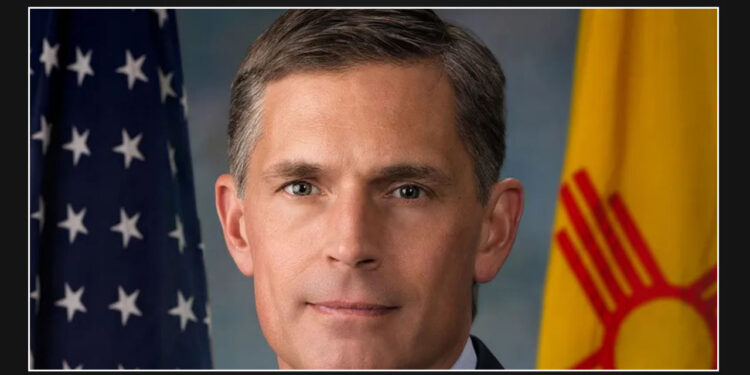U.S. Senator Martin Heinrich has earned recognition as an influential figure in the realm of artificial intelligence. In a list compiled by Time magazine, he was mentioned alongside notable personalities such as anti-deepfake activist Francesca Mani, actress Scarlett Johansson, and Google and Alphabet CEO Sundar Pichai.
“I am truly humbled to be recognized as one of the top 100 influential leaders in AI by Time,” expressed Heinrich on Monday. “As the field of AI continues to advance at a rapid pace, it is crucial for Congress to intervene and ensure that AI serves as a boon to the American public rather than a potential menace. By adopting the right approach, we can unleash the full potential of AI innovation, leading to significant scientific and medical breakthroughs, including advancements at esteemed institutions like our national labs in New Mexico. At the same time, it is imperative to establish safeguards that effectively address the risks associated with AI. I am fully dedicated to this important endeavor.”
Heinrich has been recognized for his contributions to the field of AI by being named to the publication’s list of the 100 Most Influential People in AI. In 2019, he took the initiative to establish a congressional caucus focused on AI. Additionally, he played a crucial role as a member of a Senate workgroup that recently developed a recommended roadmap for AI policy.
In addition, it is worth mentioning that Heinrich has collaborated on various AI-related bills, as stated in the report.
According to the article, Heinrich’s stance on AI is neither pessimistic nor overly optimistic. He recognizes the potential of AI to advance science and medicine and supports the continuous growth of the American AI industry. However, he also emphasizes the importance of implementing strong regulatory protections to ensure responsible and ethical use of AI technology.
Heinrich stated that it would not be wise to delay the implementation of guardrails for AI, as regulators did with the internet and social media.
According to his statement, the rapid advancements in technology offer immense potential for innovation and progress. However, it is crucial to acknowledge that these advancements also create opportunities for misuse and exploitation.

